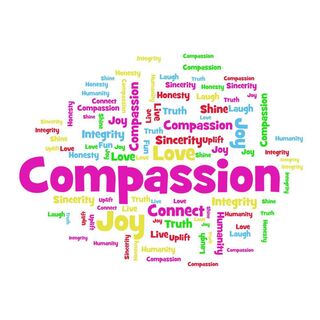Depression
How to Be Compassionate to Yourself
You are the victim of your pain, but you don't need to be the perpetrator too.
Posted June 28, 2021 Reviewed by Davia Sills
Key points
- People often think of compassion as being other-directed, but it can be valuable when self-directed too.
- The more intense your suffering, the more you should love and forgive yourself.
- Pain is part of life, but you don't need to pile on; instead of shame, guilt, or blame, try to be kind to yourself.
Compassion is something we assume is always directed to others. To feel compassion literally means "to suffer with," so when we have this emotion, we are actually sharing the suffering of a fellow human. But we can also be the recipient of our own compassion.
Self-compassion is a concept associated with the author Kristin Neff, although psychologists have known for a very long time that being kind to ourselves is a crucial component in any process of psychological healing.
Self-compassion in depression
It is ironic that when things get very difficult in life, and we become depressed, we tend to blame our misfortunes and our own suffering on ourselves. This is called "turning against the self," which seems very unfair and, in fact, could almost be seen as a kind of self-betrayal. If things being hard in my life weren't enough, I also turn against myself and conclude that my personality and how I have managed my life are the origin of all my problems. I am wicked, lazy, weak, and incompetent. In cases of severe depression, these feelings of guilt and inadequacy can reach a delusional intensity, but even in milder depressions, the "turning against the self" tends to perpetuate and reinforce the feelings of sadness.

We can challenge this self-reproach with self-compassion. If you are the victim of your own recriminations and guilt, remind yourself that you are also a suffering and fallible human being, struggling through the trials of life and therefore worthy of compassion. In fact, this compassion should even be proportionate to the amount of suffering you are experiencing. The more intense your sadness, the more you should love and forgive yourself.
Don't assume others are doing better.
Feelings of failure and inadequacy are often based on a belief that others are managing their lives better. You may be certain that everyone else is enjoying a superior social life and achieving more occupationally. If your self-esteem is fragile, you are likely to believe that others are more successful, more loved, and less neurotic than you.
The reality, however, is that we all struggle and that the version of ourselves we portray to others is always very heavily sanitized and edited. Even the apparently best-adjusted individuals have issues, fears, and regrets they would rather forget. Suffering is universal, and happiness a myth. So, once again, give yourself a break and forgive yourself your shortcomings. You are only human.
Finally, remember that you don't deserve your pain
You are the victim of your pain, but you don't need to be the perpetrator too.


